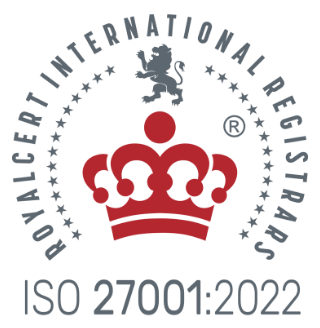By using the Alliance.in website, you agree that we can place cookies on your device as described in our Privacy Statement and this Cookie Notice.
What are cookies?
A cookie is a piece of information contained in a very small text file that is stored in your Internet browser or elsewhere on your hard drive. Cookies allow a website to identify a user’s device whenever that user returns to the website and are commonly used in order to make websites work more efficiently and enrich the user experience, as well as to provide information to the owners of the site.
Alliance’s use of cookies
Alliance collects information during your visit to an Alliance website through the use of cookies. We use these cookies for a variety of reasons, most commonly to distinguish you from other users of our websites and to help us compile aggregate statistics about usage of our websites. We also use cookies to help us provide you with a positive experience when you browse our website, help improve our content, and to personalize your visit.
Alliance may also use tracking technologies called web beacons to collect information about your visit to Alliance sites. These are small images embedded in web content and HTML-formatted email messages and are ordinarily not visible to users. Like cookies, this technology enables us to track pages and content accessed and viewed by users on Alliance sites. Also, when we send HTML-formatted (as opposed to plain text) emails to our users, this technology may be embedded in such emails. Using web beacons allows us to determine whether emails have been opened or links were accessed, and identify aggregate trends, individual usage, and generate statistics about how our site is used. This enables us to provide our users with more relevant content or additional information about our services.
Web beacons are often used in combination with cookies; however unlike cookies, web beacons cannot be declined when delivered via a regular web page. However, they can be refused when delivered via email. If you do not wish to receive this technology via email, configure your email software to disable HTML images or refuse HTML emails (selecting the option for text only viewing). Setting your browser to decline cookies or to prompt you for an opt-in response before cookies are set will also reduce web beacons’ functionality.
The table below is a list of the main cookies set by Alliance websites. We also are providing both the purpose and the name of each cookie. Please note that we may from time to time modify or update our cookies. When that happens, we will update this list accordingly.
Alliance Insurance Brokers, including all of its affiliates, maintains relationships with clients and business partners around the world. When Alliance recommends or mentions a product or service provider, it is possible that the product or service is being offered by one of Alliance’s clients or business partners.
Alliance maintains a strict Code of Business Conduct covering many topics, including antitrust and competition law, conflicts of interest, anti-bribery, privacy, financial reporting, compliance with trade restrictions, protection of confidential information, and compliance with all laws and regulations applicable to the conduct of our business. Alliance also files necessary disclosures with all governmental regulators.
If you have any questions about an Alliance recommendation or mention of another business entity (or about an entity with whom Alliance conducts business), please follow-up with your Alliance contact person. Alliance is committed to serving our clients in a transparent manner.
You can control acceptance of cookies by modifying your Internet browser preferences. You have the ability to accept all cookies, to be notified when a cookie is set or to reject all cookies. Please note that, if you choose to block all cookies (including essential cookies) you may not be able to access all or part of our site and may be unable to use those services or engage in activities that require the placement of cookies.
To disable cookies:
- If you are using Internet Explorer 8.0+:
- Go to “Tools” in the menu bar and then click on “Internet Options”
- Click on “Privacy” Tab on top
- Move the slider up to the “Block all the Cookies” setting
- If you are using Firefox 4.0+:
- Go to “Tools” in the menu bar
- Click on “Options”
- Click on “Privacy Tab”
- Disable the box that says “Tell websites I do not want to be tracked”
- If you are using Google Chrome:
- Go to “Tools Menu”
- Click on “Settings”
- Click on “Advanced Settings”
- Click on “Privacy/Content Settings”
- “Cookies” should be selected. Once done select “Block third party cookies and site data”
- If you are using Safari 5.0:
- Choose Safari > Preferences and click “Security.”
- In the “Accept Cookies” section, specify if and when Safari should accept cookies from websites. To see an explanation of the options, click the Help button (looks like a question mark). If you have set Safari to block cookies, you may need to temporarily accept cookies to open a page. Repeat the above steps, selecting Always. When you’re done with the page, turn off cookies again and remove the page’s cookies.
For more detailed information on how to control cookies you may wish to visit www.allaboutcookies.org

